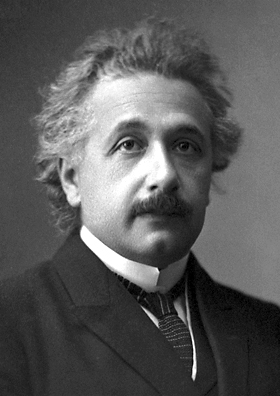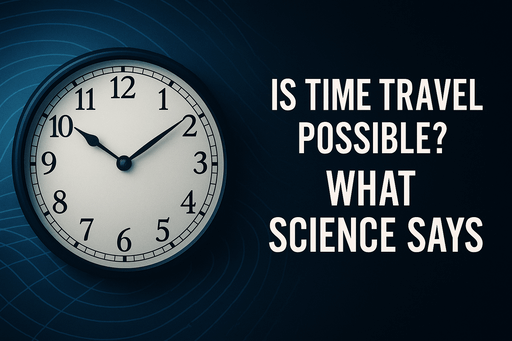Time Travel — No Longer Just Science Fiction
“Time travel” has long lived only in the imagination — in movies, novels, and dreams.
But today, modern physicists are treating it as a theoretical possibility, grounded in the laws of physics rather than fantasy.
Instead of merely asking “Can we go back to the past?”, science is now exploring how time bends, stretches, and interacts with gravity.
Einstein’s Theory of Relativity Opens the Door to Time
The scientific foundation for time travel lies in Einstein’s Special Theory of Relativity (1905).
According to this theory, as an object’s speed approaches the speed of light, time slows down — a phenomenon known as time dilation.
For example, if an astronaut travels close to the speed of light, their clock would tick more slowly than on Earth — effectively allowing travel to the future.

Source: Wikimedia Commons / Public Domain
This isn’t just theory — it’s observable.
GPS satellite clocks tick slightly slower than those on Earth due to their high velocity.
Without relativistic corrections, GPS positioning would drift and fail.
Source: NASA Glenn Research Center, “Time Dilation in Orbit,” 2023.
Black Holes and Wormholes — The Shortcuts of Spacetime
Gravity provides another clue to time travel.
Black holes bend spacetime under immense gravity, distorting the flow of time itself.
Theoretically, wormholes — tunnels connecting two distant points in spacetime — could serve as shortcuts through time if they exist.
Physicist Kip Thorne proposed that wormholes could act as time portals,
but instability and energy problems make them impossible to traverse — at least for now.
Source: Kip S. Thorne, “Black Holes and Time Warps,” 1994.
The Grandfather Paradox — A Logical Problem in Time
One of the most famous puzzles in time-travel theory is the Grandfather Paradox.
If you went back in time and prevented your grandfather’s birth, would you still exist to go back in the first place?
The 2013 film 🎬 About Time beautifully visualizes this dilemma — showing how even the smallest changes in the past can reshape the present entirely.
It’s a reminder that changing the past defies logic and physics alike.
Thus, traveling to the past remains more a matter of philosophy than science.
The Multiverse Theory — A Universe of Possibilities
To escape this paradox, some physicists suggest the Multiverse Theory.
When you change the past, you don’t rewrite your own timeline — you create a parallel universe where events unfold differently.
This concept became popularized by 🎬 Marvel’s Loki (2021),
where the TVA (Time Variance Authority) monitors branching timelines and new realities born from time manipulation.
Reference: Max Tegmark, “Parallel Universes,” Scientific American, 2003.
Conclusion — Half Science, Half Mystery
Modern science offers a balanced verdict:
- Time travel to the future: Physically possible through relativity
- Time travel to the past: Logically and experimentally impossible
- Multiverse theory: Fascinating but unproven
Time travel remains an arena where possibility meets mystery.
We may not control time yet, but humanity’s curiosity to uncover its secrets is, itself, timeless.

